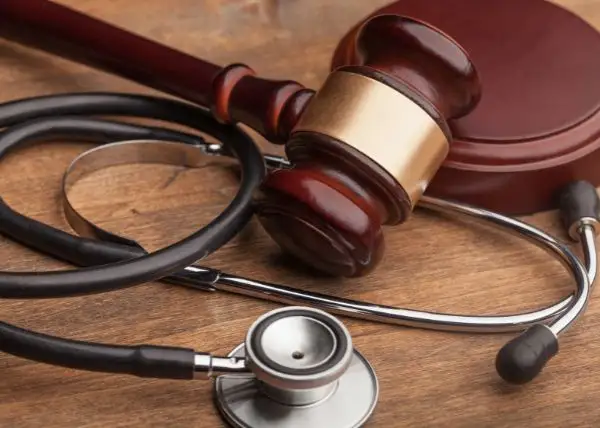Toll Free: (866) 907-1145
Local: (919) 833-3370
Toll Free: (866) 907-1145
Local: (919) 833-3370
Misdiagnosis can be more than just a medical oversight – it can alter lives. If you or a loved one has suffered due to a medical professional's error, you deserve answers and justice. As leading medical malpractice lawyers in Raleigh, NC, we have the expertise and passion to champion your cause.
A misdiagnosis can delay essential treatment, lead to harmful therapies, or even prove fatal. When medical professionals falter in their duty, holding them accountable ensures justice for you and safeguards others from similar mistakes.

Medical malpractice law exists to protect patients from negligent actions taken by healthcare providers. One of the most common forms of malpractice is misdiagnosis or delayed diagnosis. Before we delve deeper, it is vital to understand that not all instances of misdiagnosis automatically qualify as medical malpractice. To constitute malpractice, the misdiagnosis must result from negligence, which can sometimes be challenging to prove.
To hold a doctor liable for misdiagnosis, the following criteria must be satisfied:
To build a strong case, gathering substantial evidence is critical. This could include:
Misdiagnosis is a serious issue that can lead to a range of complications, including unnecessary treatments, delayed recovery, or even exacerbated health issues. Here, we highlight some common types of medical conditions that are misdiagnosed. If you suspect you have been a victim of any of these, don't hesitate to seek legal counsel:
Incorrectly diagnosing cancer can either lead to unnecessary treatments, with their accompanying side effects, or a delay in critical intervention. Common types of cancer misdiagnoses include breast cancer, lung cancer, and prostate cancer.
The symptoms of a heart attack can sometimes mimic other conditions, leading doctors to misdiagnose it as indigestion, anxiety, or other minor issues. This kind of misdiagnosis can result in tragic outcomes, including death.
Early intervention is crucial when it comes to strokes. Misdiagnosing or delaying the diagnosis can lead to significant, irreversible damage, including paralysis and cognitive impairments.
Misdiagnosing infectious diseases, such as HIV, tuberculosis, or COVID-19, can lead to the spread of the disease and complications in the affected individual. Timely and accurate diagnosis is essential for appropriate treatment and management.
Conditions like lupus, rheumatoid arthritis, and celiac disease can sometimes be misdiagnosed as other illnesses due to overlapping symptoms. This often results in delayed treatment, causing further harm to the patient.
Mental health conditions are often complex and can be difficult to diagnose accurately. Misdiagnosing psychiatric conditions can lead to inappropriate treatments that may exacerbate the original issue.
In children, misdiagnosis is quite common, especially for conditions like autism, ADHD, and juvenile diabetes. Incorrect diagnosis can lead to inappropriate treatments and developmental delays.
Asthma is often misdiagnosed as chronic obstructive pulmonary disease (COPD) or bronchitis, leading to ineffective treatment plans and worsening of symptoms.
Diabetes can sometimes be misdiagnosed as stress or lifestyle-related issues, leading to a delay in essential treatments and potentially resulting in serious complications.
If you believe you or a loved one has been a victim of misdiagnosis, you have the right to seek justice. Consulting with experienced medical malpractice attorneys can be crucial in holding the responsible parties accountable. Reach out to The Law Offices of John M. McCabe for guidance and representation in your quest for justice. Let’s work together to bring to light the truth and ensure such errors are duly addressed.
Your Health, Your Rights. Stand Up with The Law Offices of John M. McCabe.

Realizing that you or a loved one might have been a victim of medical malpractice can be a profoundly distressing experience. Time is of the essence in these cases, and knowing the right moment to contact a medical malpractice lawyer can be vital. Here, we break down the crucial junctures at which seeking legal counsel from experts like The Law Offices of John M. McCabe should be your next step.
If you have reason to believe that a doctor has misdiagnosed your condition, resulting in incorrect treatment or delayed intervention, it's time to consult with a legal expert. They can guide you on how to gather evidence and build a strong case.
Medical procedures often come with risks, but if you face an unexpected adverse outcome that seems due to an error or negligence, it is prudent to reach out to a lawyer who can evaluate the merit of your case.
If your health condition worsens substantially following a treatment or procedure, and you suspect that it may be due to medical negligence, it’s advisable to contact a lawyer immediately to assess the situation and advise on the potential for a malpractice claim.
Doctors are required to provide patients with adequate information about the potential risks and benefits of a treatment or procedure. If you believe your doctor did not obtain informed consent before proceeding, consult with a lawyer to discuss possible legal actions.
Prescription drug errors can have severe consequences, whether in prescription, dispensation, or administration. If you suspect an error in any stage of medication management, a lawyer can help identify whether malpractice occurred.
Errors can occur at various levels in a hospital setting - from surgical errors to issues with sanitation and safety. If you've experienced an error that has led to harm, a lawyer can guide you through the legal pathways to seek redress.
Medical malpractice cases are often complex and require a deep understanding of medical and legal nuances. It is crucial to consult with experienced medical malpractice lawyers who can guide you through the process, evaluating the strength of your case and advising on the best way forward.
At The Law Offices of John M. McCabe, we stand as a beacon of hope for victims of medical malpractice in Raleigh, NC. With our extensive experience and unwavering commitment to securing justice for our clients, we can help navigate the intricacies of your case, offering the legal expertise and support you need during this challenging time.
Navigating the complexities of a medical misdiagnosis can be incredibly challenging. At The Law Offices of John M. McCabe, we aim to assist you by addressing some of the most frequently asked questions in this area.
A medical misdiagnosis occurs when a healthcare provider fails to correctly identify and diagnose a patient's medical condition, diagnoses them with a wrong condition, or delays the diagnosis unnecessarily, which potentially leads to harm or adverse outcomes for the patient.
Yes, you can potentially sue for medical misdiagnosis. However, you'll need to prove that the misdiagnosis occurred due to negligence, and that it resulted in harm or injury. It's advised to consult with a medical malpractice lawyer to evaluate the specifics of your case.
To prove medical misdiagnosis, you must establish a few key elements:
You would typically need to gather substantial evidence, possibly including medical records, expert testimonies, and witness statements.
Misdiagnosis can lead to various repercussions including delayed treatment, unnecessary or harmful treatments, increased medical costs, physical and emotional distress, worsening of the condition, or even death in extreme cases.
The statute of limitations can vary depending on your jurisdiction. In general, it might range from one to several years from the date of the incident or from the date you became aware of the potential malpractice. Consult with a legal expert to understand the specific time frame applicable in your case.
At The Law Offices of John M. McCabe, we offer comprehensive assistance, including evaluating the strength of your case, gathering necessary evidence, providing expert testimonies, and representing you zealously in court to seek justice and appropriate compensation.
Yes, if your case is successful, you may be entitled to compensation. The compensation might cover medical bills, lost wages, pain and suffering, emotional distress, and other potential damages resulting from the misdiagnosis.
The duration of a medical malpractice lawsuit can vary widely depending on the case's complexity, the parties' willingness to settle, and the backlog of the court system. It could range from a few months to several years.
To initiate a medical misdiagnosis lawsuit, consult experienced medical malpractice attorneys like The Law Offices of John M. McCabe. We will guide you through the necessary steps, ensuring you are well-informed and prepared at every stage.
If you have further questions or need legal assistance, please contact us for a personalized consultation. Remember, at The Law Offices of John M. McCabe, we are here to fight for your justice.
Remember, the legal journey can sometimes be long and taxing. Having a dedicated legal team by your side can be a tremendous asset. At The Law Offices of John M. McCabe, we are committed to fighting for the justice and compensation you deserve.
Attorney Advertising | Prior results do not guarantee a similar outcome. The information on this website is for general information purposes only. Nothing on this site should be taken as legal advice for any individual case or situation. This information is not intended to create, and receipt or viewing does not constitute, an attorney-client relationship. This site is protected by reCAPTCHA and the Google Privacy Policy and Terms of Service apply.